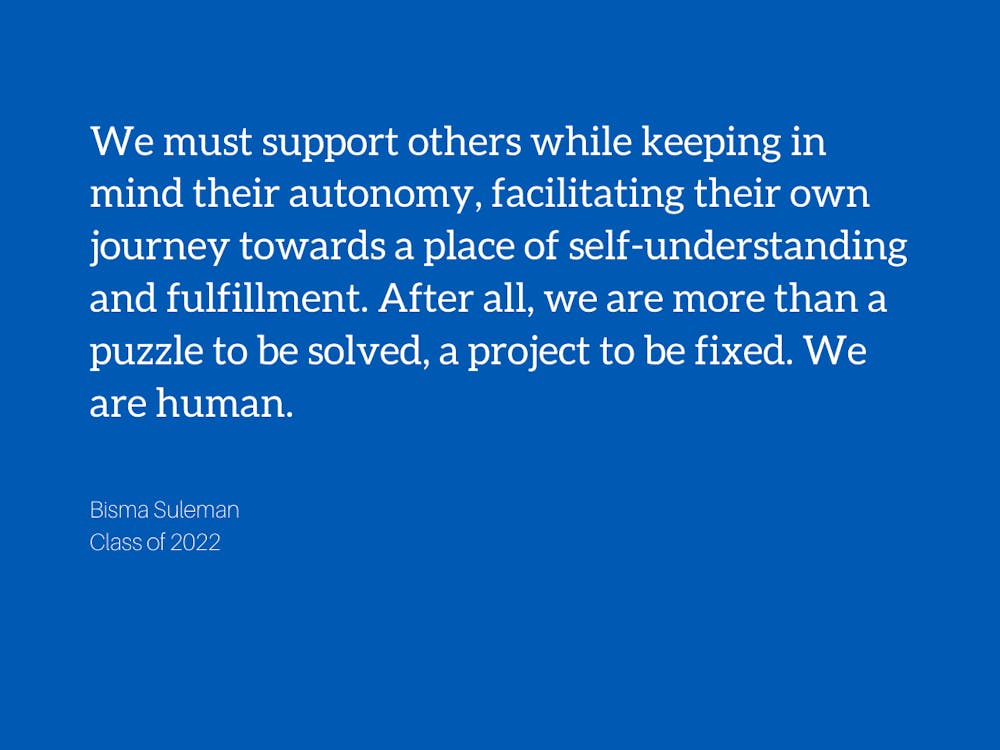The best therapist I've ever had is one I still look up to. I suppose I'm pretty lucky to have had such a positive experience starting out in therapy. However, I always wondered how my therapist was so effective in impacting the way I view myself and the world. Truthfully, I often didn’t even know what to expect when I would step into his office for our hour-long appointments. I was always pleasantly surprised after I left, but one would think a sort of structure would aid in a coherent bond between the client-therapist relationship
And perhaps that's not necessarily true. The freedom of being able to share my thoughts and feelings with Dr. R without the need for rigid walls between us felt absolutely liberating. The rigidity that comes with fierce note taking or a callous reading of symptoms. There was none of that. I felt like way more than a checklist of symptoms.
I felt human.
I didn't realize it then, but I needed that assurance of humanity. I felt worthless most days; anything I did or said often resulted in internal feelings of shame or guilt. Granted, many of those feelings were not unfounded. He never excused them either. But there was unconditional positive regard in a way that reminded I was not perfect by any means, but no one really is.
"I'm trying to understand how a good person like you came to a place where you did something like that."
I remember him saying this to me one day.
Dr. R thinks I'm a good person, I thought.
Am I a good person?
Why would he say that if I'm not?
Is he just being a decent therapist and trying to make me feel better....
or does he really mean it?
But Dr. R never hinted at an inkling of disingenuity. His demeanor was calm, his body language remained as casual as it always did. He said those words to me as if he were merely asking about the weather. Matter-of-fact. The curiosity that would follow lined his face like a puzzle I'd trace. Over time he'd ask me similar questions with the same genuineness, the same demeanor, the same curiosity. The same subtlety that affirmed I am indeed a good person, yet I sometimes manage to find myself in a place where I make mistakes. And that’s okay.
It sounds so obvious now, but that dialectic had never dawned on me before. Instead I often replaced it with guilt and loathing. But in therapy, I was constantly reminded that I am human, I am flawed, I make mistakes and say things I regret and will probably continue to do so, and it was all okay. It's entirely possible to be a good person who has done or said regrettable things. It's possible to love and forgive yourself while still taking responsibility for your actions. I am forever grateful to Dr. R for teaching me this.
However, this approach to therapy is not always common, for better or worse. Many of those who have either considered therapy or tried it out for themselves are met with disappointment for a variety of reasons – personal or external shame, fear, helplessness, finances, or even mental health stigmas within their communities. One reason I have heard many times over from my friends at Duke is the idea of being dehumanized; deduced to just another patient, another money-making effort, another medium to be nodded, smiled, “I understand what you’re saying”-ed to with little awareness of what that even means.
This isn’t limited to therapy, either. How many of us have attempted to share our vulnerabilities with someone only to be met with a barrage of well-intended advice and solutions without truly feeling heard? Without feeling validated? Without feeling we are more than our traumas, our hurt, our struggles, our voids? People often don’t share their struggles because they want to fix them, they want to feel understood. They want to feel loved. They want to feel human. We need to remember that while we so badly want to give others the solutions that may seem glaringly obvious to us, the most impact we can have in someone’s life is by letting them come to these realizations themselves. Does this mean we should simply back away and seal our mouths shut when someone may benefit from a different perspective? No, this means we must support others while keeping in mind their autonomy, facilitating their own journey towards a place of self-understanding and fulfillment. After all, we are more than a puzzle to be solved, a project to be fixed. We are human.
Bisma Suleman is a Trinity sophomore. Her column, “insane in the membrane,” runs on alternate Fridays.
Get The Chronicle straight to your inbox
Signup for our weekly newsletter. Cancel at any time.

